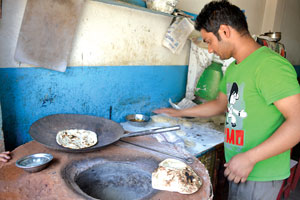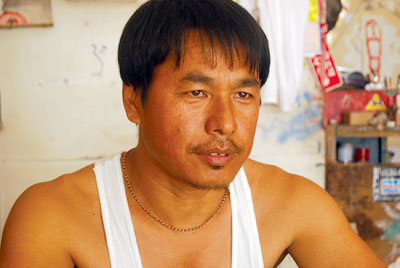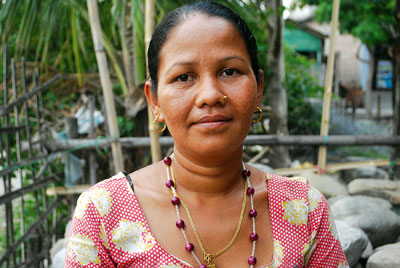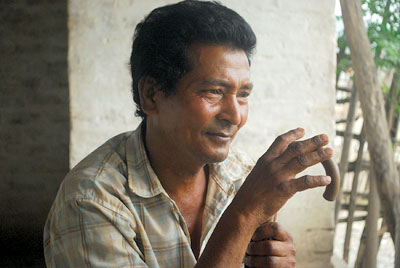 SUNIR PANDEY "This is a small country, we have many ethnicities but can't give states to all, the ones who are getting ethnic states are the ones with strong political say. " Devendra Adhikari, restaurant worker/student |
The national newspapers, evening news on television and local FM stations are full of debate about the new constitution, and especially the movement by groups lobbying for and against federalism with identity.
However, here in eastern Nepal, where there are conflicting territorial claims for ethnic autonomy, ordinary people are apprehensive that traditional social harmony will be irreversibly disturbed.
However, some like dairy farmer Lokendra Subedi say the ties across ethnic lines here are too strong to be broken by a few politicians. "We haven't been affected at all," Subedi says, "my neighbours are Newars, and they don't bother me and I don't bother them."
Subedi delivers 150 litres of milk early every morning to Rai, Limbu and Madhesi customers in Dharan, but the only thing that worries him are shutdowns and transportation strikes which affect his business. "All I want is for the strikes to stop, and the constitution to be passed. There is too much politics and there are too many politicians," he adds ruefully.
In Dharan, Bishnu Maya Rai runs a small tea shop near the BP Memorial Hospital called 'New aunty'. Her customers are a microcosm of Nepal's ethnicities. "I wish people would stop talking about this ethnic group and that ethnic group," she says, pouring tea, "they are fighting over a problem they themselves created, while we ordinary people struggle to survive."
She says she hears on the radio that there is tension between ethnicities in other parts of Nepal, but says she hasn't seen any tension in her town. "We are living peacefully together, and I am sure we can live like this in the future as long as politicians don't mess it up," says Rai.
 "The leaders promised us a better future, but we feel cheated. I don't think they love the Nepali people. Social harmony still exists between different groups in Nepal, but our politicians are trying to break this unity which is wrong. Although ethnic identities should be recognised and respected, I am scared that we might be heading down the path of ethnic conflict." Bishnu Tamang of Dharan |
 "People from many different ethnicities and backgrounds live together in this area. And we haven't heard of any mistreatment. No matter which party is in power, the government gives rights to wealthy people and makes life harder for poor people. All I am asking from the leadership is to let us live in peace so that we can earn our day's meal." Sita Bhujel lives in a squatter settlement in Bagarkot, Dharan. |
 PICS: SITA MADEMBA "It's hard to find work during bandas and I am struggling to feed my family. I neither understand nor support the disputes on ethnic identities. Political groups will keep making assurances, but I don't trust them. Even the Maoists made promises to decrease the gap between the poor and the rich and failed to deliver. I have realised nobody cares about poor people like myself. I don't expect much, I will be happy if I can live without fear in my country and if I am allowed to work for a living." Tek Bahadur Shanker of Panchakanya works as a daily wage labourer at construction sites and has a family of seven to look after. |
Read also:
Us Nepali
I am Amrit Nepali, AMRIT GURUNG
From Syangja to Sydney, from Fikkal to Finland, the silent majority of Nepalis don't agree with the division of Nepal
National identity crisis, RUBEENA D SHRESTHA
At a time when we should be valuing our multiple, intersecting identities, we are being told to choose a single, overarching definition of ourselves


